Do you suffer from Sleep Deprivation?

Sleep deprivation is a big problem in today’s world. We’re all working longer hours and slowly decreasing our sleep time as the years go by. Couple this with the high stress lifestyles we lead and that too may keep us up at night, laying there for hours going over our thoughts.
If you’re not getting the quality shut-eye you need, make no mistake about it, it’s impacting every single element of your health and well-being. Learning how to sleep better is, by far, the most critical step you must take to see improved health and well-being.
SLEEP SUPPORT
SLEEP SUPPORT
Sleep deprivation is a serious threat to every aspect of your health and can really crumble your overall quality of life.
To overcome sleep deprivation, you must first address the reasons you can’t sleep. Below, we will cover the six sleep disruptors and how to combat them.
Restless Legs Syndrome
There’s evidence that magnesium deficiencies can contribute to RLS. Taking a daily magnesium supplement may help reduce symptoms and can improve sleep quality.
Condition
A disorder that causes an overwhelming urge to move legs, usually associated with unpleasant sensations often during sleep and relieved by movement.
Symptoms
- Tingling, burning or itching
- A creepy-crawly feeling
- Feeling like fizzy water is inside the blood vessels in the legs
- A painful, cramping sensation in the legs, particularly in the calves
- Leg jerking
- Pulling – feeling of pulling in the legs
- Throbbing – sensation of throbbing near the calves
- Aching- leg pain
Eliminate The 6 Sleep Disruptors
There are 6 things that disrupt the body and prevent it from getting into stage 4 sleep and getting good REM according to BiOptimizers co-founder and CEO, Matt Gallant.
- Light
- Pressure points
- Temperature
- Cortisol, Adrenaline, and Noradrenaline
- The Full Belly
- Crazy Beta Brain Train
Sleep Disruptor#1: Darkness And Light
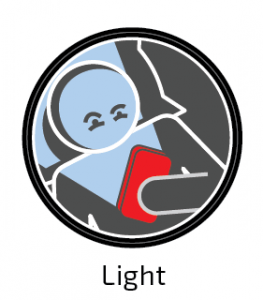
At night, the absence of light tells your brain “It’s time to go to sleep.” The problem is that all of our devices are fooling our brains. There’s far too much blue light coming from you smartphones, tablets, TVs and light bulbs, which tricks the brain into thinking it’s still daytime.
Sleep Disruptor#1: Darkness And Light
One of the simplest health hacks you can do is to optimize the light in your life. Your circadian rhythms are primarily dictated by light.
First, in the morning, the blue light hitting the photoreceptors in your skin and eyes tells your body “This is the start of the day.”
And then at night, the absence of light tells your brain “It’s time to go to sleep.” The problem is that all of our devices are fooling our brains. There’s far too much blue light coming from your smartphone, tablets, TVs and light bulbs. The brain thinks it’s still day time.
This means the body doesn’t produce the optimal amount of melatonin, which is critical to kickstart the sleep cycle.
Here are some thoughts on this from neurosurgeon and health researcher, Jack Kruse:
“Humans are built to burn fat at night as we sleep to lose excess weight we don’t need. The timing of the leptin action is also critical. It usually occurs between 12-2 AM and is tied to when you last ate and how much darkness your eyes have seen. This generally occurs soon after our hypothalamus releases another hormone called prolactin from our pituitary gland in the brain.
Ok, you must be asking why is this prolactin hormone so important? Is not prolactin just a hormone to secrete human milk, doc? That is not the only action of prolactin. Immediately after prolactin is released at this time, another signal is sent to the anterior pituitary to release Growth Hormone (GH). GH is stimulated only during autophagic sleep cycles in stages 3 and 4 to increase protein synthesis for muscle growth all while you’re dissipating heat.
This is the major release of GH in humans post-puberty. The implications here are huge. If you are leptin resistant and have sleep apnea you will have an altered body composition because of a low GH level. It means as you age you have higher body fat and lower muscle mass. This is precisely what we see in humans as they age and invariably their sleep is also poor.”
Our brains and bodies have evolved on a simple circadian design for millions of years. Light tells the body to wake up. Darkness tells the body to go to sleep. The point is, our bodies aren’t designed for the bombardment of blue lights coming from our screens and light bulbs.
One of the simplest health hacks you can do is to optimize the light in your life. Your circadian rhythms are primarily dictated by light.
First, in the morning, the blue light hitting the photoreceptors in your skin and eyes tells your body “This is the start of the day.”
And then at night, the absence of light tells your brain “It’s time to go to sleep.” The problem is that all of our devices are fooling our brains. There’s far too much blue light coming from your smartphone, tablets, TVs and light bulbs. The brain thinks it’s still day time.
This means the body doesn’t produce the optimal amount of melatonin, which is critical to kickstart the sleep cycle.
Here are some thoughts on this from neurosurgeon and health researcher, Jack Kruse:
“Humans are built to burn fat at night as we sleep to lose excess weight we don’t need. The timing of the leptin action is also critical. It usually occurs between 12-2 AM and is tied to when you last ate and how much darkness your eyes have seen. This generally occurs soon after our hypothalamus releases another hormone called prolactin from our pituitary gland in the brain.
Ok, you must be asking why is this prolactin hormone so important? Is not prolactin just a hormone to secrete human milk, doc? That is not the only action of prolactin. Immediately after prolactin is released at this time, another signal is sent to the anterior pituitary to release Growth Hormone (GH). GH is stimulated only during autophagic sleep cycles in stages 3 and 4 to increase protein synthesis for muscle growth all while you’re dissipating heat.
This is the major release of GH in humans post-puberty. The implications here are huge. If you are leptin resistant and have sleep apnea you will have an altered body composition because of a low GH level. It means as you age you have higher body fat and lower muscle mass. This is precisely what we see in humans as they age and invariably their sleep is also poor.”
Our brains and bodies have evolved on a simple circadian design for millions of years. Light tells the body to wake up. Darkness tells the body to go to sleep. The point is, our bodies aren’t designed for the bombardment of blue lights coming from our screens and light bulbs.
Sleep Disruptor #2: Temperature
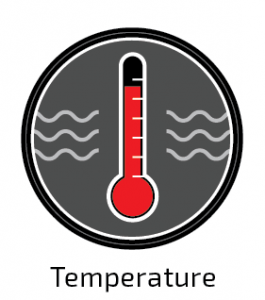
Optimizing the temperature could be the #1 sleep optimizer. Your body WAKES UP when it’s too hot. It’s another part of the daily circadian rhythm that evolved because of the warmth of the day and the coldness of the night.
If you live in a hot humid climate like Panama, you need to sleep with air conditioners. The question is, is a cold room good enough?
For most people, it’s not. Matt used to lose 3-4 lbs of water while he slept despite sleeping in air-conditioned rooms. Why? Because the heat gets trapped between the body, the bedsheets and the mattress. The body temperature rises and the body begins to sweat. The sheets get damp and the body tosses and turns. It’s a massive sleep disruptor.
Sleep Disruptor #3: No Pressure Points
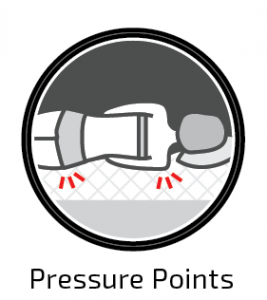
Your body automatically moves when it senses there’s blood constriction. For example, if you sleep on your side on a normal mattress, there will be a lot of pressure on your hips and shoulders. This pressure makes your body toss and turn which prevents you from going into a deep sleep.
For side sleepers, memory foam is a must to spread out the weight evenly. Memory foam mattresses solve this problem by spreading the pressure evenly throughout your body.
However, one of the issues with some of the foam mattresses is, it traps body heat. Another problem with most memory foams is the off-gassing.
Sleep Disruptor #4: Consistency And Early Sleep
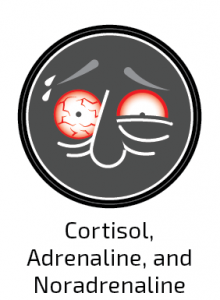
Many people say “Every hour you sleep before midnight is worth 2 hours.” There is some truth to this but it’s a bit more complex. If you don’t go to bed before a certain time (as determined by your circadian rhythm and chronotype), you’ll experience a second wind.
Many people say “Every hour you sleep before midnight is worth 2 hours.” There’s some truth to this but it’s a bit more complex.
If you don’t go to bed before a certain time (as determined by your circadian rhythm and chronotype), you’ll experience a second wind. Back in the days before technology, the only reasons you would stay awake would be either to hunt or protect your tribe. In order to do those things effectively, you need adrenaline and noradrenaline.
If you miss your body’s ideal sleep window, the body starts pumping out adrenaline and noradrenaline. This can lead to insomnia.
One thing that will absolutely wreck your sleep is cortisol, adrenaline and noradrenaline – the body’s hormonal and neuro stimulants. This is why going to bed at the right time is critical.
The next question is, what’s early? The answer: it depends on your chronotype. “Early” changes from person to person. For some, early could mean 8 pm. For many, it’s around 10 pm and then for others, it’s usually before midnight.
There’s a hormonal magic zone when you sleep and a cascade of vital anti-aging hormones including melatonin, prolactin and growth hormone that your body will NOT release if you aren’t sleeping by that time.
Sleep Disruptor #4: Consistency And Early Sleep
Many people say “Every hour you sleep before midnight is worth 2 hours.” There’s some truth to this but it’s a bit more complex.
If you don’t go to bed before a certain time (as determined by your circadian rhythm and chronotype), you’ll experience a second wind. Back in the days before technology, the only reasons you would stay awake would be either to hunt or protect your tribe. In order to do those things effectively, you need adrenaline and noradrenaline.
If you miss your body’s ideal sleep window, the body starts pumping out adrenaline and noradrenaline. This can lead to insomnia.
One thing that will absolutely wreck your sleep is cortisol, adrenaline and noradrenaline – the body’s hormonal and neuro stimulants. This is why going to bed at the right time is critical.
The next question is, what’s early? The answer: it depends on your chronotype. “Early” changes from person to person. For some, early could mean 8 pm. For many, it’s around 10 pm and then for others, it’s usually before midnight.
There’s a hormonal magic zone when you sleep and a cascade of vital anti-aging hormones including melatonin, prolactin and growth hormone that your body will NOT release if you aren’t sleeping by that time.
Sleep Disruptor#5: Meal Timing
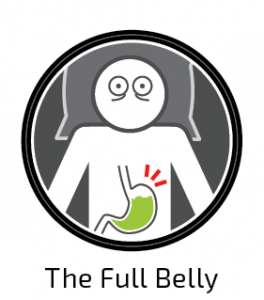
Once Matt started tracking sleep, one of the biggest needle movers was meal timing. If Matt ate close to bedtime, his sleep score and deep sleep crashed. If given adequate time to digest, sleep scores were maximized.
Here’s another quote from health researcher Jack Kruse on this topic, “The prolactin surge does not happen if the patient has sleep apnea or ate some carbs too close to bedtime. You will never see the prolactin surge because any spike in insulin turns off this critical release.”
You shouldn’t feel anything lingering in your stomach when you hit the sack. You should feel like you have an empty stomach. On the flip side, the ideal is not to go to bed hungry. If your ghrelin (the hunger hormone) is growling, it will be hard to fall asleep.
Sleep Disruptor#6: Downshift From The Crazy Beta Brain Train
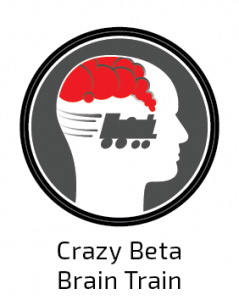
The brain is always producing various electrical waves depending on what state it’s in. Most people are trapped in a beta brain wave state of mind. This is a surefire way to destroy sleep quality. This is the root problem for almost all insomniacs.
The brain is always producing various electrical waves depending on what state it’s in. Most people are trapped in a beta brain wave state of mind. This is a surefire way to destroy sleep quality. This is the root problem for almost all insomniacs.
Mastering Your Brain Waves
There are five major groups of brainwaves. Three of them are on the healing side, and two are more on the fight, flight, or freeze side.
GAMMA WAVES (35 HZ to 100 HZ+): The fastest waves are gamma. When doing EEG analysis on Zen monk masters, gamma is their dominant wave. Gamma is an incredibly high spiritual state. You experience a universal connection with a higher power. However, it can be very taxing on the nervous system. There is a physical cost to it. Not ideal to ramp up gamma before bed.
BETA WAVES (12 HZ TO 30 HZ): With beta, we’re engaged, we’re focused, we’re thinking. If beta goes too high in the wrong parts of the brain, the person experiences anxiety. As discussed earlier, the majority of people are stuck in beta. This is the state many people refer to as “The monkey brain”. This is the crazy beta brain train that can create endless streams of thoughts. This is where you can feel your brain is trapped on a hamster wheel. This is one of the greatest destroyers of sleep. It’s critical to downshift from this state into…
ALPHA WAVES (8 HZ TO 12 HZ): When you start slowing your brain waves down from beta, you’ll enter alpha once you get between 8-12 Hz. Alpha is relaxed and alert. A great first goal for meditators is to reach this state. To maximize sleep, doing a 5 to 20-minute meditation in order to move the brain waves into alpha can do wonders for sleep quality.
THETA WAVES (4 HZ TO 7 HZ): Then if you slow your brain waves down even more , between four to seven Hertz, you’ll enter theta. This is a much slower and deeper state. This is a fantastic state for visualization. Everyone hits this state at least twice a day. Once when you’re falling asleep and once when you wake up. Those states are referred to as hypnagogic (when you fall asleep) or hypnopompic (when you wake up). It’s the state where you’re slightly aware of your dream.
DELTA WAVES (0.5 HZ TO 4 HZ): And then if you slow it down even more, between zero and four Hz, you’ll enter delta. Delta is what we go down to when we hit stage 4 sleep called “deep sleep”. Almost all of the healing in your body happens in this sleep phase. Your growth hormone, your testosterone, and most of your rejuvenating, healing hormones get produced in delta sleep. This is also when a lot of your learning happens. This is the foundation of high-quality sleep.
On the fight, flight, or freeze side, we have beta and gamma. On the healing and recovery side, we have alpha, theta, and delta.
Sleep Disruptor#6: Downshift From The Crazy Beta Brain Train
Mastering Your Brain Waves
There are five major groups of brainwaves. Three of them are on the healing side, and two are more on the fight, flight, or freeze side.
GAMMA WAVES (35 HZ to 100 HZ+): The fastest waves are gamma. When doing EEG analysis on Zen monk masters, gamma is their dominant wave. Gamma is an incredibly high spiritual state. You experience a universal connection with a higher power. However, it can be very taxing on the nervous system. There is a physical cost to it. Not ideal to ramp up gamma before bed.
BETA WAVES (12 HZ TO 30 HZ): With beta, we’re engaged, we’re focused, we’re thinking. If beta goes too high in the wrong parts of the brain, the person experiences anxiety. As discussed earlier, the majority of people are stuck in beta. This is the state many people refer to as “The monkey brain”. This is the crazy beta brain train that can create endless streams of thoughts. This is where you can feel your brain is trapped on a hamster wheel. This is one of the greatest destroyers of sleep. It’s critical to downshift from this state into…
ALPHA WAVES (8 HZ TO 12 HZ): When you start slowing your brain waves down from beta, you’ll enter alpha once you get between 8-12 Hz. Alpha is relaxed and alert. A great first goal for meditators is to reach this state. To maximize sleep, doing a 5 to 20-minute meditation in order to move the brain waves into alpha can do wonders for sleep quality.
THETA WAVES (4 HZ TO 7 HZ): Then if you slow your brain waves down even more , between four to seven Hertz, you’ll enter theta. This is a much slower and deeper state. This is a fantastic state for visualization. Everyone hits this state at least twice a day. Once when you’re falling asleep and once when you wake up. Those states are referred to as hypnagogic (when you fall asleep) or hypnopompic (when you wake up). It’s the state where you’re slightly aware of your dream.
DELTA WAVES (0.5 HZ TO 4 HZ): And then if you slow it down even more, between zero and four Hz, you’ll enter delta. Delta is what we go down to when we hit stage 4 sleep called “deep sleep”. Almost all of the healing in your body happens in this sleep phase. Your growth hormone, your testosterone, and most of your rejuvenating, healing hormones get produced in delta sleep. This is also when a lot of your learning happens. This is the foundation of high-quality sleep.
On the fight, flight, or freeze side, we have beta and gamma. On the healing and recovery side, we have alpha, theta, and delta.
Brain Waves And Sleep
Getting into an alpha state, you’ll boost your serotonin and improve your sleep quality. Magnesium Breakthrough can do wonders in this department. Take 2-3 caps an hour before bed will kick start the serotonin-melatonin cycle.
Brain Waves And Sleep
The brain remains active during sleep and each stage of sleep has brain waves that accompany it.
- Stage 1: Alpha waves begin being replaced by theta waves as one transitions from relaxation to sleep. Sleep is light and easily disturbed.
- Stage 2: Brain waves slow down as alpha activity ceases completely and theta waves predominate.
- Stages 3 and 4: Brain activity slows down as delta waves occur. This is the magic zone for rejuvenation and recovery.
- Stage 5: During the rapid eye movement (REM) stage, the muscles become temporarily paralyzed, and the eyes move quickly. The pattern of brain waves is similar to that in stages 1 and 2, although the sleeper is in a deeper state of sleep.
According to Dr. Michael J Breus “The Sleep Doctor”, “People with insomnia showed less powerful alpha-wave activity and more powerful beta-wave activity.
With eyes open, people with insomnia displayed less power in alpha waves in at least two different areas of the brain, within the frontal and temporal lobes.
With eyes closed, people with insomnia showed more powerful beta waves globally throughout the brain. “
So if you can boost your alpha brain waves and lower your beta brain waves before sleep, you will improve your sleep quality dramatically. Serotonin levels in the brain also maintain the ratio between slow brain waves (so-called delta–theta activity) and alpha brain waves.
Serotonin is critical for melatonin. The precursor to melatonin is serotonin, a neurotransmitter that itself is derived from the amino acid tryptophan. Within the pineal gland, serotonin is acetylated and then methylated to yield melatonin.
It is Matt’s theory that by getting into an alpha state, you’ll boost your serotonin and improve your sleep quality. Magnesium Breakthrough can do wonders in this department. Take 2-3 caps, an hour before bed will kick start the serotonin-melatonin cycle.
The brain remains active during sleep and each stage of sleep has brain waves that accompany it.
- Stage 1: Alpha waves begin being replaced by theta waves as one transitions from relaxation to sleep. Sleep is light and easily disturbed.
- Stage 2: Brain waves slow down as alpha activity ceases completely and theta waves predominate.
- Stages 3 and 4: Brain activity slows down as delta waves occur. This is the magic zone for rejuvenation and recovery.
- Stage 5: During the rapid eye movement (REM) stage, the muscles become temporarily paralyzed, and the eyes move quickly. The pattern of brain waves is similar to that in stages 1 and 2, although the sleeper is in a deeper state of sleep.
According to Dr. Michael J Breus “The Sleep Doctor”, “People with insomnia showed less powerful alpha-wave activity and more powerful beta-wave activity.
With eyes open, people with insomnia displayed less power in alpha waves in at least two different areas of the brain, within the frontal and temporal lobes.
With eyes closed, people with insomnia showed more powerful beta waves globally throughout the brain. “
So if you can boost your alpha brain waves and lower your beta brain waves before sleep, you will improve your sleep quality dramatically. Serotonin levels in the brain also maintain the ratio between slow brain waves (so-called delta–theta activity) and alpha brain waves.
Serotonin is critical for melatonin. The precursor to melatonin is serotonin, a neurotransmitter that itself is derived from the amino acid tryptophan. Within the pineal gland, serotonin is acetylated and then methylated to yield melatonin.
It is Matt’s theory that by getting into an alpha state, you’ll boost your serotonin and improve your sleep quality. Magnesium Breakthrough can do wonders in this department. Take 2-3 caps, an hour before bed will kick start the serotonin-melatonin cycle.
Magnesium Breakthrough Helps You Sleep

Magnesium Breakthrough
£29.99 – £74.99
BiOptimizers Magnesium Breakthrough contains the full spectrum of all seven forms of the most bioavailable magnesium along with vitamin B6 to support mental health and promote a healthy stress response.
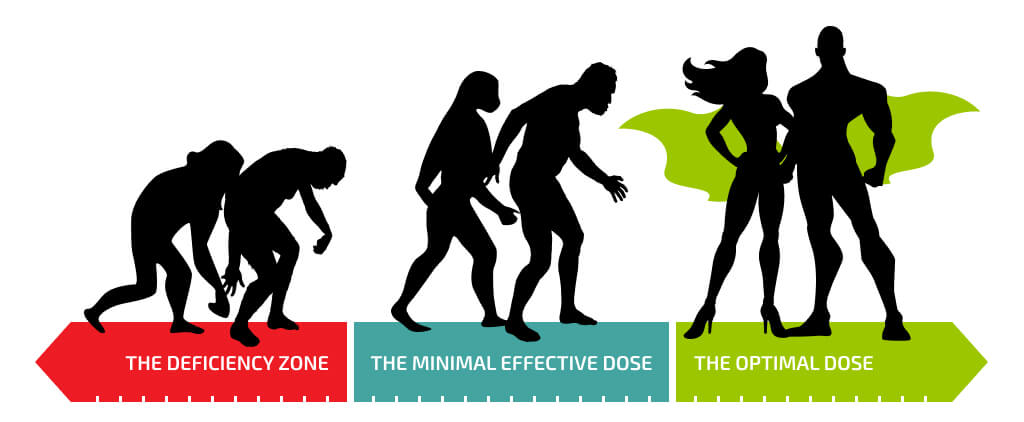
BiOptimizers Magnesium Breakthrough is the only supplement on the market that offers the full spectrum of all seven types of magnesium specially formulated to reach every tissue in your body to provide maximum health benefits and reverses low levels which could be causing health issues.